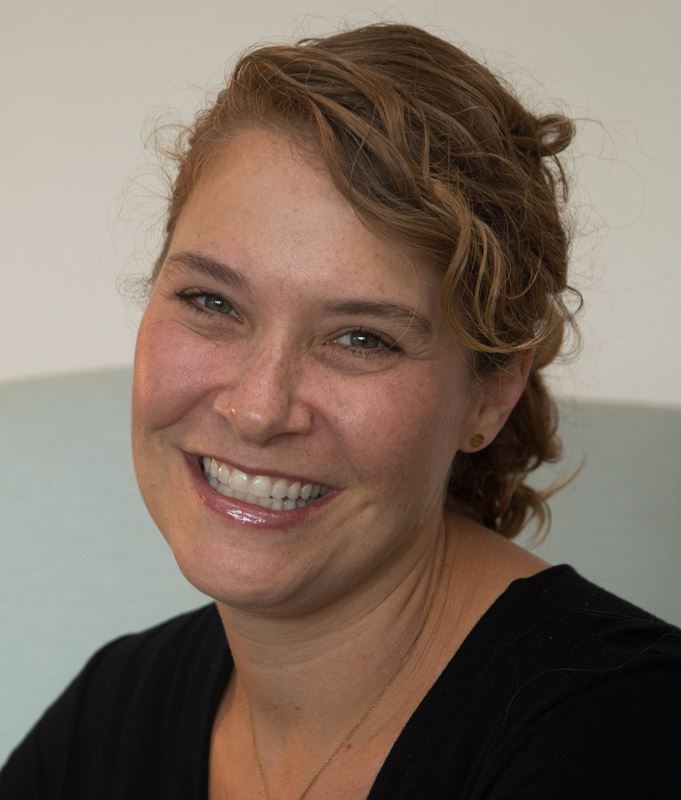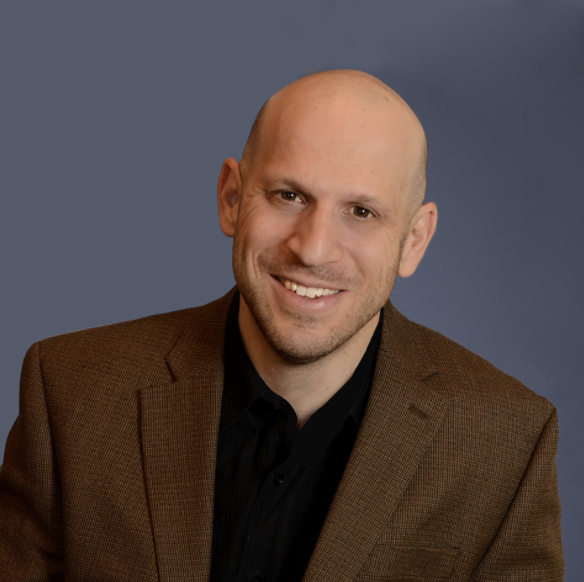In the first act of Shakespeare’s Hamlet (1.3.84 Folger), Polonius sends his son, Laertes off to school with a quick rat-tat-tat of paternal advice on fashion, finances and interpersonal relationships. He ends his loving speech with a mentoring doozy, “This above all: to thine own self be true.”
In the first book of the Torah, after Adam and Eve disobey God by eating the fruit of Good and Evil and hide in the Garden of Eden, God seeks them out with this powerful mentoring question, “Where are you?” (Genesis 3:9)
Polonius’ great wisdom was that one’s own guidance has to come from within – he could give his son advice but, in the end, Laertes’ own life’s compass is found in his own natural resourcefulness. The same is true with God’s powerful question to Adam and Eve: Medieval commentator Rashi writes, “God knew where Adam and Eve were, but God asked this question in order to open up a conversation,” (Rashi on Genesis 3:9). God wanted Adam and Eve to answer the question for themselves.
Being a great mentee starts with the premise that with enough reflection and remaining true to ourselves, which is far more easily said than done, we each will be able to locate ourselves in this world. Being a great mentor means serving as the guiding hand that supports a growth-based relationship, based not in fixing problems, but rather in opening up conversations. By "opening up the conversation," mentees are invited to see where they are (point A) and imagine where they want to be (point B). Mentors help mentees get from point A (as defined by the mentee) to Point B (also defined by the mentee), often by helping mentees gain a broader perspective on themselves and their situation.
The Wexner Graduate Fellowship/Davidson Scholars Alumni Mentoring Program (created in partnership with the Jim Joseph Foundation) matches Jewish professionals with mentors for a year-long process to support their ongoing professional and personal growth. The mentoring relationship’s positive impact on both mentees and mentors is significant and serves as an important strategy for improving professionals’ leadership skills.
Now in its eighth year, we have gleaned some wisdom about the importance of Jewish professionals being true to themselves and knowing where they are at (and where they want to be) that we would like to briefly sample here.
For Mentees: Maintain a Growth Mindset
Your mentoring experience will be helpful to you only if you really want to grow. Your mentor may give you pro tips along the way, but it is your job to use your mentor as a catalyst for your own reflection, growth and change. You are the one that needs to do the work. You need to come to each session prepared with an agenda and to ask for what you need - some days it will be gentle support and other days you will need constructive feedback. Sometimes your growth will entail facing some difficult truths about yourself as a professional. That’s okay - this work is hard and often woven into our souls. A mentor believes in the mentee’s inherent creativity and resourcefulness while encouraging them to go deeper and further in their leadership. Zen master Shunryu Suzuki says, “you…are perfect the way you are ... and you can use a little improvement.” Singer/Songwriter of Jewish songs Dan Nichols uses this idea as commentary on the blessing for the body when he sings: “I’m perfect the way I am and a little broken too.” As an engaged mentee, you are responsible for your growth and improvement.
Since mentoring is about growth and change, it’s natural for you to use conversations with your mentor as a place to share frustrations and challenges. While having your mentor’s compassionate ear is a wonderful thing, to make the most of mentoring you really want to find pathways to action. When you find yourself complaining, Rae Ringel (co-creator of this mentoring program) suggests remembering that underneath every complaint is an unmade request. That is to say, when you are feeling disgruntled, instead of wallowing in the kvetch, work with your mentor to identify a clear, time-bound request that you can make. It will help you get what you want (or understand why you can’t) and allow your mentor to help you deepen your learning and forward your action. Focusing on requests, rather than complaints, will allow you to discover opportunities where you might previously have only seen challenges.
For Mentors: Prioritize being, doing and asking
For a satisfying and successful career, Cindy Chazan (the other co-creator of this mentoring program) recommends to Jewish professionals to “swap your to-do list with your to-be list.” This advice is not only beneficial for your mentee’s growth, but in your growth as a mentor. While your mentee is seeking you out (in part) due to your professional accomplishments, the success of the relationship will ultimately depend on how you show up and model that to your mentee. Strive to authentically and candidly model how you have been true to yourself, with all of the requisite difficult choices that has entailed, over the course of your career. This means sharing your accomplishments and your missteps, and what you learned from both. Your mentee will be impressed with your achievements but will be impacted by how you show up: with intention, candor and compassion.
On the other hand, just as leadership is an activity and not a position, mentoring is also an activity – it is about what you do with who you are. Sometimes people say that they had a mentor, but it wasn’t someone with whom they had an actual relationship that fostered growth. Instead, it was someone they admired, or looked to as a role model. When we think about mentoring as an activity, we focus on the verbs, not the nouns. That means that to mentor well, you don’t have to be an expert or a role model 100 percent of the time. But you do need to be real and intentional. The actions you take – the questions you ask, the listening you do, the new perspective you offer – are what make you a mentor.
Questions are the mentor’s super-tool, but it’s not because of the information mentors get from the answers. The questions’ power resides in the transformation, clarity or commitment that the mentee experiences when considering and answering the question; it’s not about what you (the mentor) need to know, but about what the mentee needs to learn. Coaching pioneer Henry Kimsey-House writes, “Powerful questions invite introspection, present additional solutions, and lead to greater creativity and insight.” Asking powerful questions requires deep listening and gives rise to new perspectives for the mentee – and honors their unique ability to be resourceful and creative.
Both Shakespeare and God really know how to turn a phrase. In just six words (“To thine own self be true,”) Polonius modeled the core of mentoring. God bested Shakespeare by doing it in only three words! (And only one word in Hebrew - “Ayekah?”). In “Where are you?” God asks a powerful question that undergirds Shakespeare’s advice. By asking this question, God opens an eternal mentoring conversation – one that can inspire any mentoring relationship that we are lucky to be part of.
Get To Know The Author
WGF/DS Alum Dr. Michelle Lynn-Sachs (Class 6) is a leadership coach and organizational consultant with the practice she founded, Spotlight Consulting & Coaching, and she is chair of the Wexner Field Fellows and a co-coordinator of the Wexner Graduate Fellowship/Davidson Scholars Program Alumni Mentoring Program.
Get To Know The Author
WGF/DS Alum Or Mars (Class 6) is a Vice President of The Wexner Foundation and a co-coordinator of the Wexner Graduate Fellowship/Davidson Scholars Program Alumni Mentoring Program.



